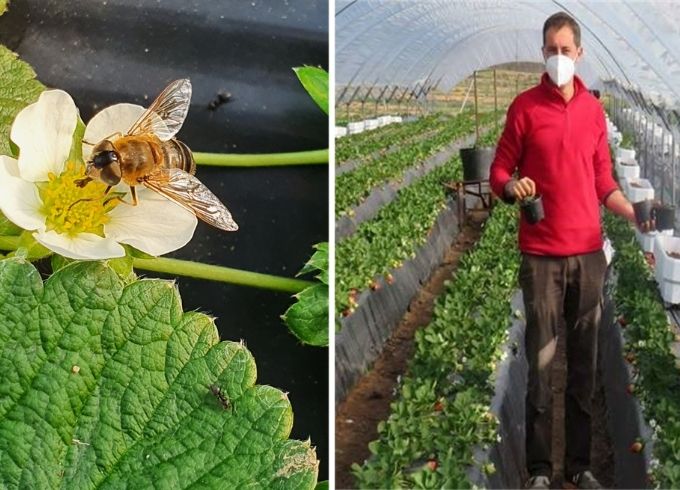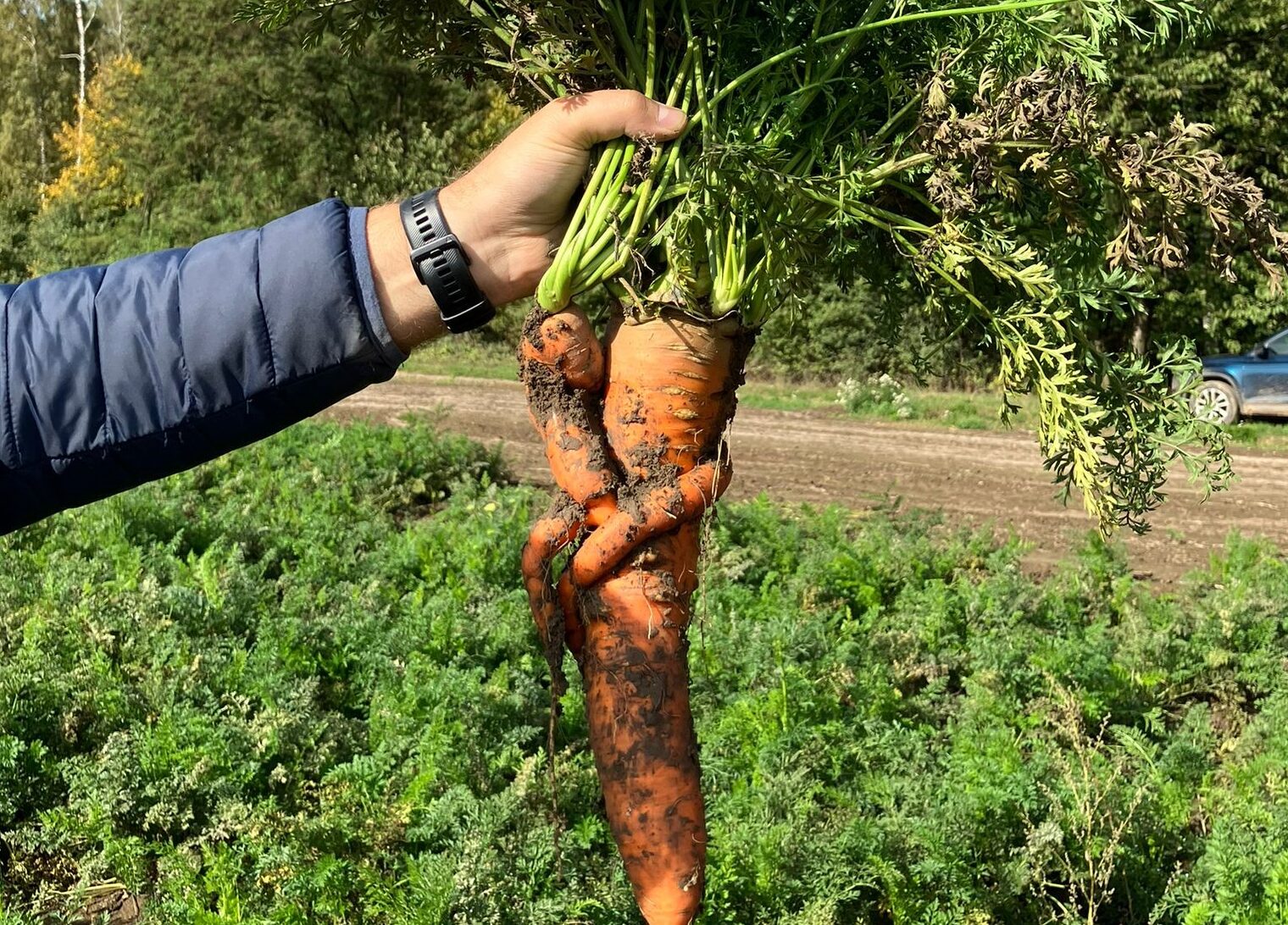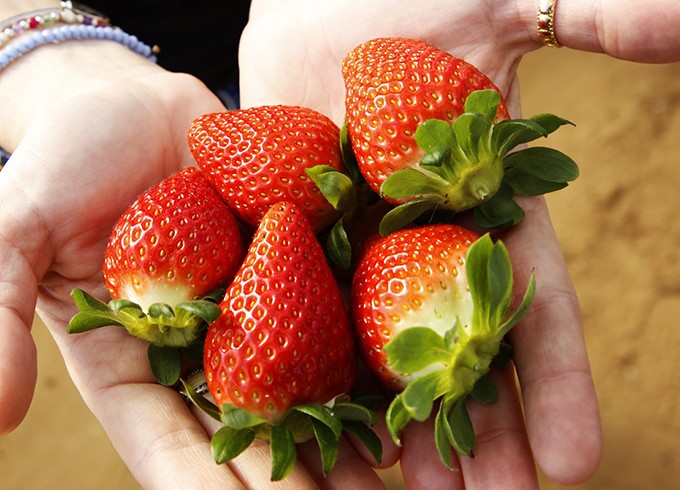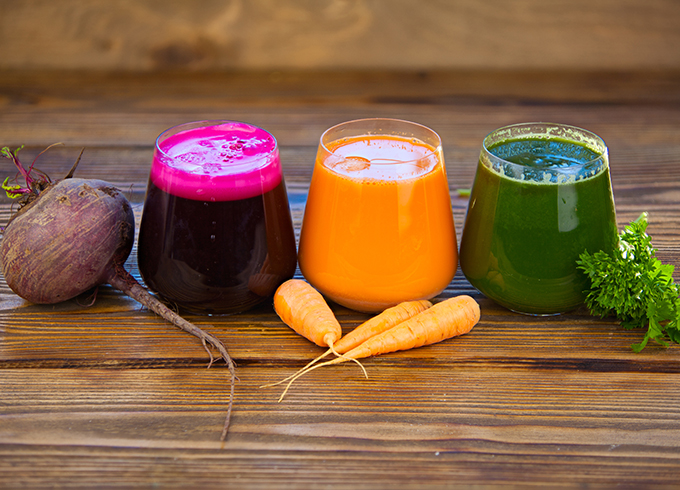A farmer’s perspective: Exploring the sustainable potential of biocontrol plants

For farmers globally, the challenges of growing fruits and vegetables without (or with limited) pesticides are many and varied. Global consumers are increasingly seeking food and drink products that align with their sustainable values and goals but finding effective, environmentally friendly alternatives to chemical sprays can be challenging, and farmers know it’s more difficult than it looks to grow without pesticides…
Together, SVZ and Danone are proactively finding ways to help farmers embrace more sustainable agricultural practices – both economically and via knowledge sharing. Their latest joint initiative, with strawberry farmers Carmelo Santana and Juan Carlos Cordero, is a project exploring an environmentally friendly alternative to chemical pesticides: biocontrol plants.
Introducing… what?
Defined as a plant that is ‘intentionally added to a crop system with the aim of enhancing crop productivity by mutual benefit, pest attraction and/or pest regulation’, biocontrol plants have been developed over the past decade as just one solution for an alternative to toxic chemical sprays. For SVZ and Danone, the potential of biocontrol plants is enormous: and so embarking on a test run in a strawberry field in Spain is an exciting opportunity to assess the method.
By using the plants as a safe habitat for ‘good’ insects such as aphid predators, the population of ‘bad’ insects can be controlled. It is hoped that this will not only boost biodiversity in fields in the short term, but support pesticide-free strawberry cultivation for future populations.
On-the-ground efforts
Developed thanks to the commitment of Carmelo and Juan Carlos’ farm, Agroecológica El Origen, in Lepe, Spain, the project involves implementing biocontrol plants in a trial section of the farm. The field is visited and monitored every two weeks by a specialised agronomist, Cristina Dasi, to measure plant and fruit quality, climate data, and the level of auxiliary fauna (and their benefits). In this way, the effects of the biocontrol plants can be measured on a granular level as the seasons change and the crops grow.
For Juan Carlos, growing strawberries is a family affair. ‘I’ve been growing strawberries for four years. My local area is well known for its strawberries, and it’s what my family has always done,” he explained. As a grower specialising in producing strawberries for high-quality baby food, he isn’t able to use chemical fertilizers – and any pesticides he uses are strictly regulated. “The decision to cultivate organic strawberries was an easy one to make, as it’s the type of farming that most respects the environment.’
Therefore, when two farmers were approached by SVZ and Danone with the idea of testing new biocontrol plants, he didn’t hesitate: ‘It’s a lot of work, but this type of partnership allows me to farm in a way that I like – by taking care of the soil and the environment, and not using chemicals. It’s exciting to learn new things, and we’re happy to invest our effort for the good of the future.”
Making progress
And so, what difference are the new plants making so far? ‘Change is understandably slow, as with all farming initiatives, but we can already see some improvement. Good insects are clearly benefitting from the biocontrol plants’ flowers. In fact, thanks to these flowers, their population is able to grow even before the strawberry plants produce fruit and, as a result, good insects can thrive all season round.’
For Carmelo, it’s the long-term vision that is most exciting. ‘We can easily put these new biocontrol plants around our strawberry fields, and they can then stay here year after year.”
Good natured
The agricultural industry is at the centre of numerous environmental challenges today – from climate change to biodiversity loss and water scarcity. The use of chemical sprays on strawberry fields is just one issue – but little by little, small steps towards positive change can make a huge difference.
If the test is a success, we hope to see the use of biocontrol plants expanded as a common practice across the region. In this way, Spanish strawberry farms can flourish, the harmful effects of chemical sprays can be slashed, and crop productivity can be improved via the effective regulation of pests. Good for plants, good for the environment, good for the farmer.
Would you like to embark on a similar sustainability initiative with us? Get in touch today and start the conversation.


